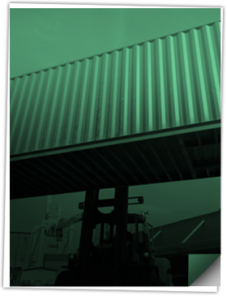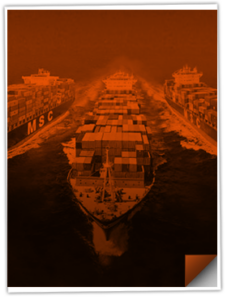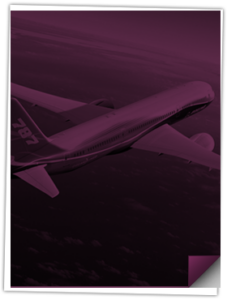Featured Headlines:
Uyghur Forced Labor Prevention Act (UFLPA)
Embrace Russian Airspace and Face Disgrace
Shipping Reformation Equipping Transformation?
Uyghur Forced Labor Prevention Act (UFLPA)
- Goods manufactured wholly or in part in the Xinjiang Uyghur Autonomous Region (XUAR) of the People’s Republic of China are not entitled entry into the US.
- This is effective June 21, 2022.
- The exception is if there is clear and convincing evidence to prove otherwise.
ITAR Regulations Update
- The Department of State is amending the International Traffic in Arms Regulations (ITAR) to better organize the purposes and definitions of the regulations.
- This rule consolidates and co-locates authorities, general guidance, and definitions.
- This Interim final rule is effective September 6, 2022.
Domestic Pit Stop Back Drop
- TRAC Intermodal, the largest maritime chassis provider in the US, has contracted with American Made Chassis (AMC) to greatly increase its chassis fleet. AMC entered the chassis market after the US International Trade Commission increased tariffs on Chinese-made chassis by 40%.
- After modest congestion improvements following the annual Chinese New Year lull, the ports of New York, Norfolk, Miami, Houston, Los Angeles, Long Beach, Tacoma, and Seattle all require 8 days or longer to secure drayage bookings on average.
- The Canadian Pacific Railroad’s lockout of its conductors and engineers began on Sunday, March 20th when the two sides failed to reach an agreement on a new contract.
- Average domestic rail moves from Chicago to the Port of New York are up over 40% year-on-year; at the same time, Chicago to the Port of Long Beach moves are up 24%.
- Contributing to land-side chaos and congestion, the following ports have more than 10 vessels at anchor: Los Angeles, Long Beach, Oakland, New York, Charleston, and Houston.
- National dry van spot rates are up more than 25% year-on-year according to DAT.
Embrace Russian Airspace and Face Disgrace
- The Bureau of Industry and Security (BIS), part of the US Commerce Department, has announced that providing any form of service to Russian aircraft or non-Russian aircraft in Russia requires BIS authorization.
- The BIS also publicly identified private and commercial aircraft that have violated Export Administration Regulations by flying into Russian airspace.
- Without BIS authorization, any person found violating these regulations risks substantial fines, jail time, loss of export privileges, and other potentially permanent restrictions.
- Secretary of Commerce, Gina Raimondo, said, “We are publishing this list to put the world on notice; we will not allow Russian and Belarusian companies and oligarchs to travel with impunity in violation of our laws.”
- Since February 24th, the BIS has greatly limited the export of aviation components to Russia, including new license requirements for aircraft and aircraft parts. On March 2nd, the BIS extended those restrictions to Belarus.
The Global Shipping Grab Bag
- 30 days after the commencement of the Russian invasion, five Black Sea ports in Ukraine remain operational. While the largest, Odessa, is enduring heavy shelling, it, and the ports of Nikolaev, Olvia, Yuzhny, and Chernomorsk continue to work ships.
- Oil prices surged another 7% this week with Brent’s global benchmark climbing above $115 per barrel. European Union members are debating whether to join the US in a Russian oil embargo.
- Hong Kong’s international gateway remained largely starved of air cargo due to Covid-related border restrictions. Air export rates tumbled as a result.
- The recent Covid outbreaks in Shenzhen and Shanghai have left those airports short of manpower though operations are steadily improving. Total cargo flows (and airfreight rates, alas) for those key gateway airports will increase rapidly after dropping for the last two weeks.
- Slow-moving convoys and burning tires choked highways across Spain as truckers continue to protest rising fuel prices and broader inflation. What was seen as a small rebellion has already spread to taxi and bus drivers, ranchers, and farmers.
- IAG Cargo Network, which includes British Airways, Iberia, Aer Lingua, Level, and Vueling, has announced a partnership with Cargo One, which offers forwarders a digital platform for obtaining rates and booking air cargo space.
Shipping Reformation Equipping Transformation?
- A broad-based shipping reform bill is on its way to the Senate. Legislators, responding to great pressure from American exporters, aim to empower the Federal Maritime Commission (FMC) with greater authority over ocean carriers and intermediaries.
- More specifically, the bill aims to prohibit ocean carriers from unreasonably declining shipping opportunities for US exports (often originating in the Midwest and currently considered unfavorable by ocean carriers eager to send empties back to Asia for imports).
- Additionally, the bill attempts to shore up powers for the FMC to ensure that detention and demurrage charges are fair and comply with federal regulations. This includes shifting the burden of proof from the invoiced party to the ocean carrier.
- Finally, the bill also requires common carriers to report volume statistics by port and rail ramp to the FMC each calendar quarter. Should the bill pass, the FMC would also be authorized to self-initiate investigations of carrier business practices while applying enforcement measures.
This Flippin' Ocean Shippin'
- As of Tuesday, there were 25 vessels, holding nearly 100,000 TEUs of cargo, anchored in Charleston’s harbor. The average berth wait time has eclipsed 10 days.
- Transpacific operational blank sailings remained near 20% for exports to the US, though LA/Long Beach destined services were blanked at an increasing clip.
- The short-term lockdowns in Shenzhen and Shanghai greatly diminished short-term demand from those ports, however, Covid-testing and quarantines have greatly reduced trucking capacity and terminal efficiency. A near-term cargo surge and severe congestion are expected for both ports.
- As shippers experience very long transits to the West Coast, less holiday time sensitivity and anxiety about ILWU negotiations, a record percentage of US Transpacific cargo is headed to East Coast ports.
- The average ocean rate globally has risen 135% over the last year. Never to be outdone, however, American shippers are paying 203% more to reach the East Coast from Asia and 185% more to reach the West Coast from Asia. Woot!



